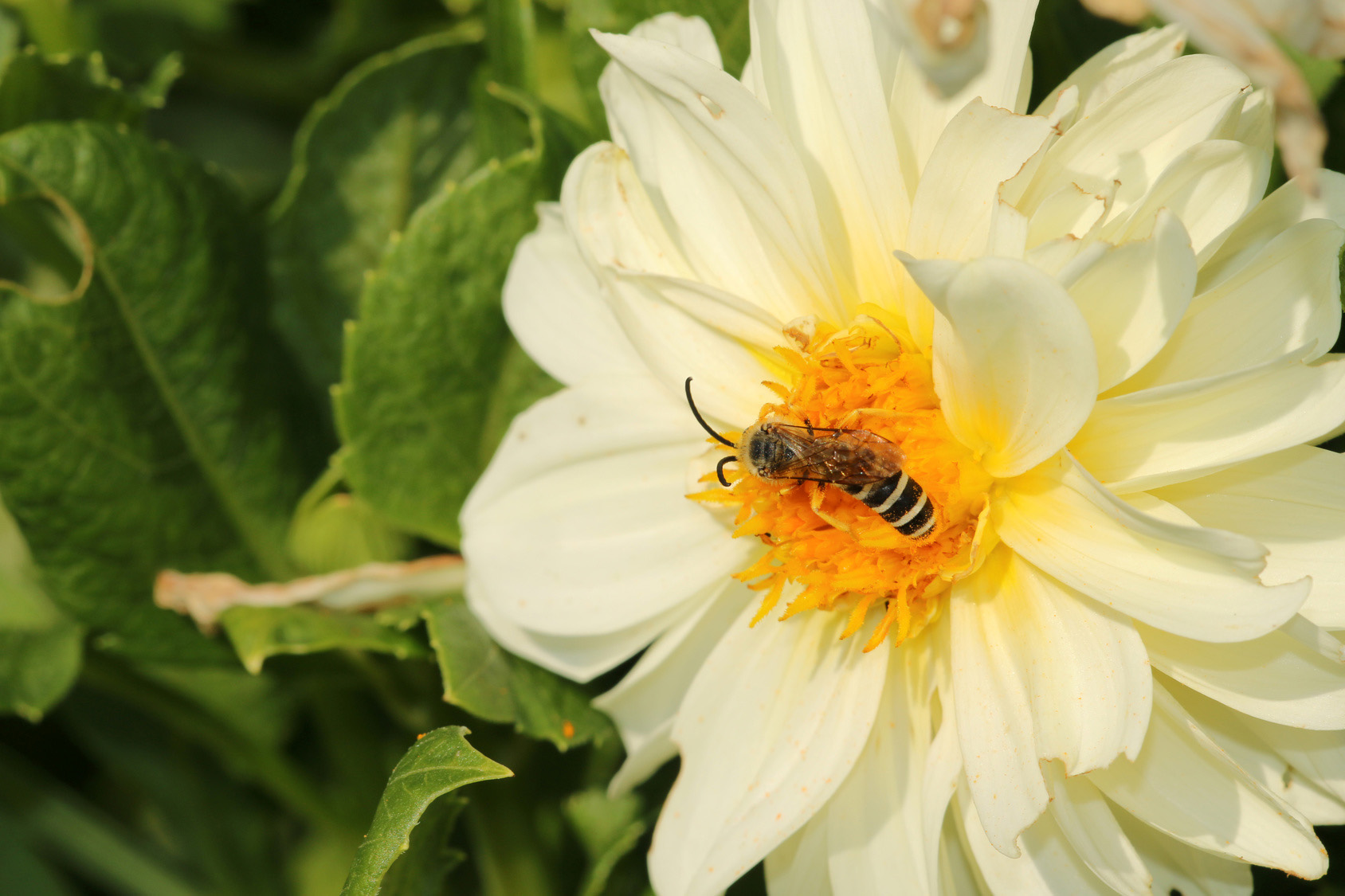Prevention and reduction of pesticides in the environment
Pesticides are a cause of biodiversity decline on Earth. This poses a great threat to us humans as well. This is because so-called ecosystem services – services that nature provides free of charge through its biodiversity, such as the pollination of plants – are in danger of being lost.
Species and habitat loss is progressing, especially in intensively managed agricultural landscapes. But even in nature reserves, biodiversity has declined sharply for many species groups, according to a 2020 statement by the Leopoldina National Academy of Sciences. According to current knowledge, in addition to monocultures and nutrient surpluses, excessive chemical crop protection is one of the main causes. It affects not only agricultural pests, but also beneficial insects such as bees and bumblebees, organisms in soils and waters, and entire ecosystems.
Pesticide sales have barely declined in Germany over the past 25 years, despite political initiatives. Around 30,000 tons of active ingredients and around 90,000 tons of crop protection products are applied annually. Significant reductions in pesticide use are needed to mitigate the negative impact of pesticides on ecosystems.
The demand for alternative crop protection measures is high, but there are hardly any field-tested alternatives available. Therefore, the DBU launched the funding initiative “Prevention and reduction of pesticides in the environment” in January 2020. The aim of the funding initiative is to work with project partners to develop innovative, non-chemical crop protection methods and thus avoid pesticide residues in the environment altogether. The funding initiative is intended to help trigger the development of innovative technological measures and methods of plant protection in order to reduce the current negative impact on ecosystems and to identify alternatives for practical application.
The goals of the funding initiative were in particular
- the prevention and reduction of pesticide residues in the environment, and
- The development of resource- and energy-efficient non-chemical crop protection methods.
For a more detailed description of the content and goals of the funding initiative, please see the flyer.
The application process for the funding initiative has already been completed. However, you can still submit project proposals on this topic area as part of the DBU’s ongoing funding activities. For more info on how to apply, visit www.dbu.de/antragstellung. Exemplary DBU projects on the topic can be found here.
Furthermore, there is the possibility to submit applications on fundamental scientific questions within the framework of the DBU doctoral scholarship program. The next deadline for submission of fellowship applications is December 15, 2021 (see Funding Guidelines for the Doctoral Fellowship Program).



Projects of the funding initiative
More than 78 project outlines covering a wide range of topics were submitted by the March 22, 2020 deadline. Of these, 19 projects were shortlisted, from which an expert jury and the DBU’s Board of Trustees selected the following projects with a total of 3 million euros. The project descriptions are in German language.
- Reduction of pesticides in protected areas (DBU-AZ 35919/01)
- Web application to determine and prevent the input of plant protection products in aquatic protected areas (DBU-AZ 35922/01)
- Beneficial insects instead of insecticides: Development of a beneficial insect rolling meadow for the cultivation of vegetables (DBU-AZ 35949/01)
- Development of a biological deterrent (repellent) against leaf fleas (psyllids) (DBU-AZ 35316/01)
- Use of mulch material for the suppression of weeds in field vegetable production (DBU-AZ 35896/01)
- Less chemical pesticides through row-based arable farming and use of beneficial insects and wild herbs in the field (DBU-AZ 35918/01)
- Reduction of pesticide use by early detection of cherry vinegar fly infestation in viticulture and orchards (DBU-AZ 35936/01)
- Promotion of natural defense mechanisms of hop plants against spider mites to reduce the use of plant protection products (DBU-AZ 35937/01)
- Effective use of beneficial insects in the cultivation of vegetables in the open field through customized flowering strips (DBU-AZ 37485/01)
- Testing of a computer-controlled prototype for the regulation of weeds by hot water (DBU-AZ 37486/01)
Contact
Dr. Hans-Christian Schaefer
Promotionsstipendienprogramm